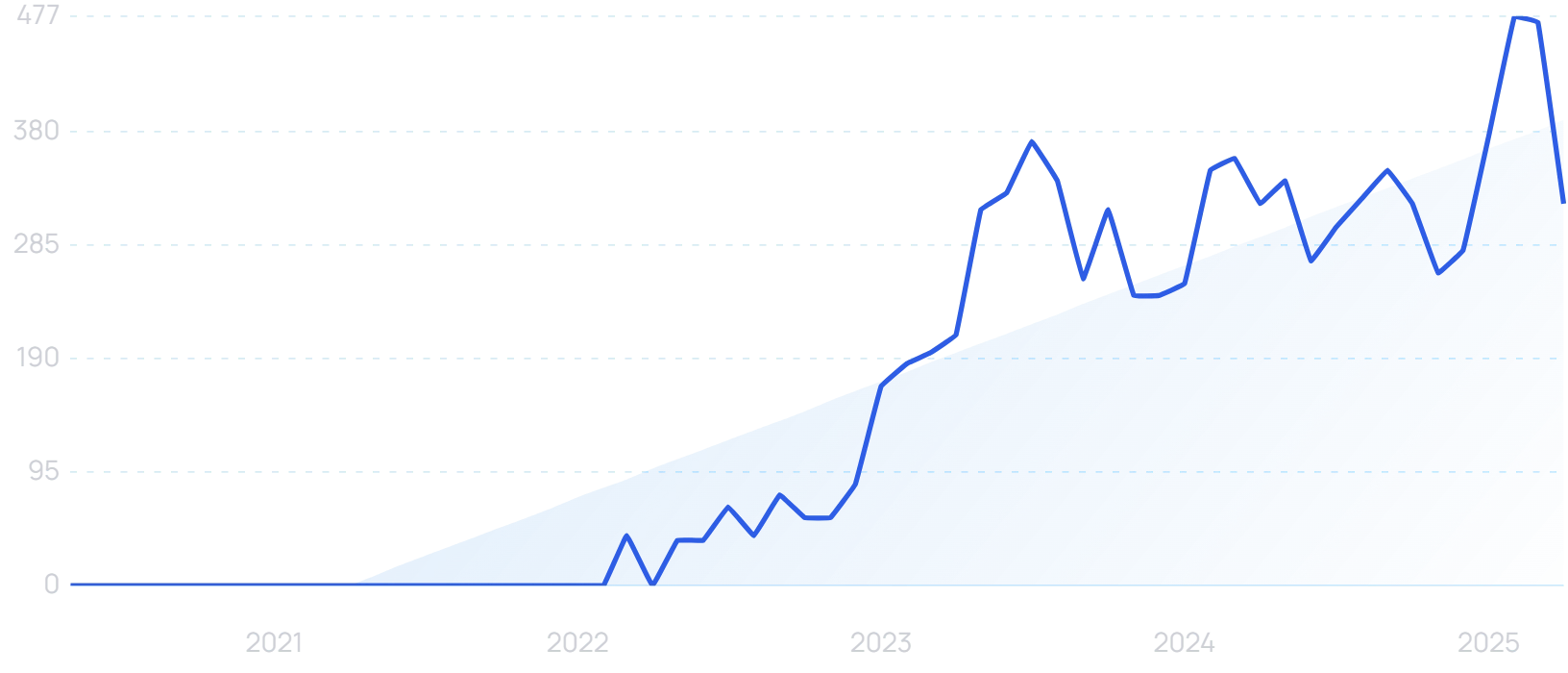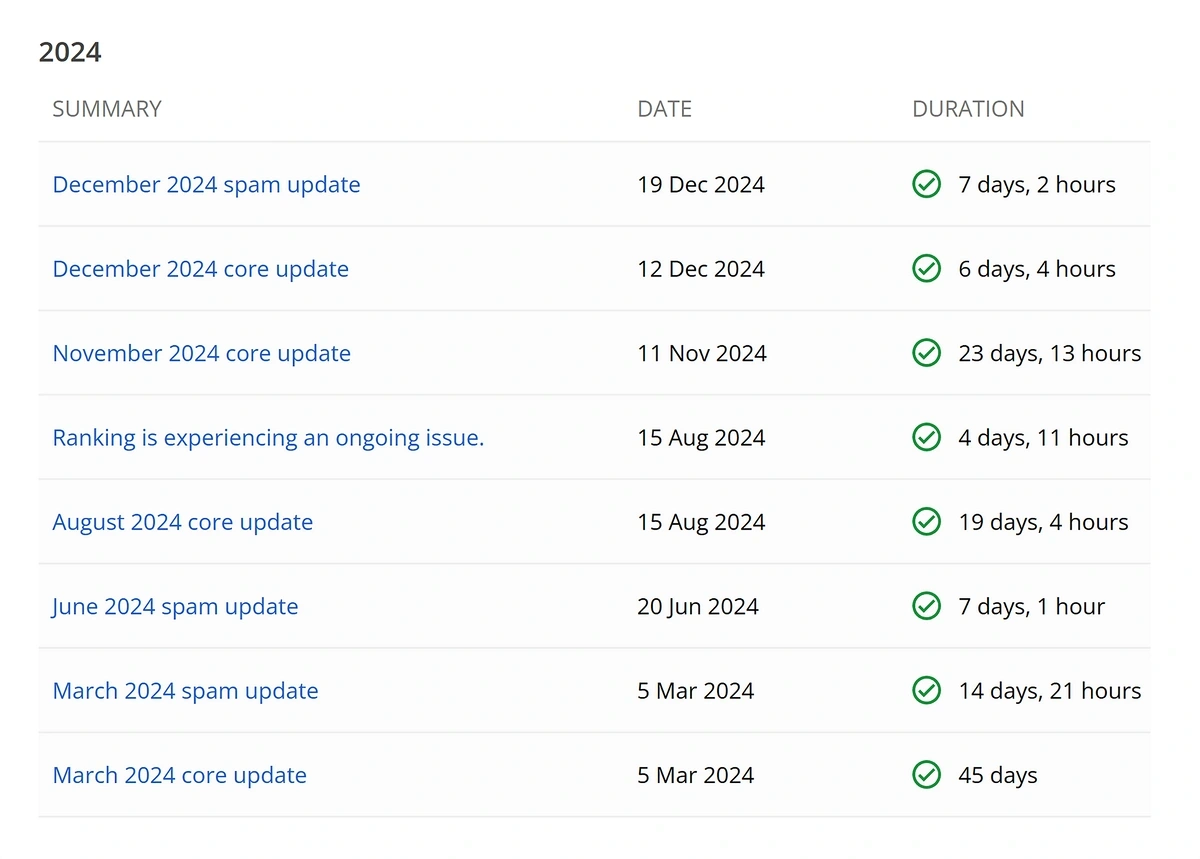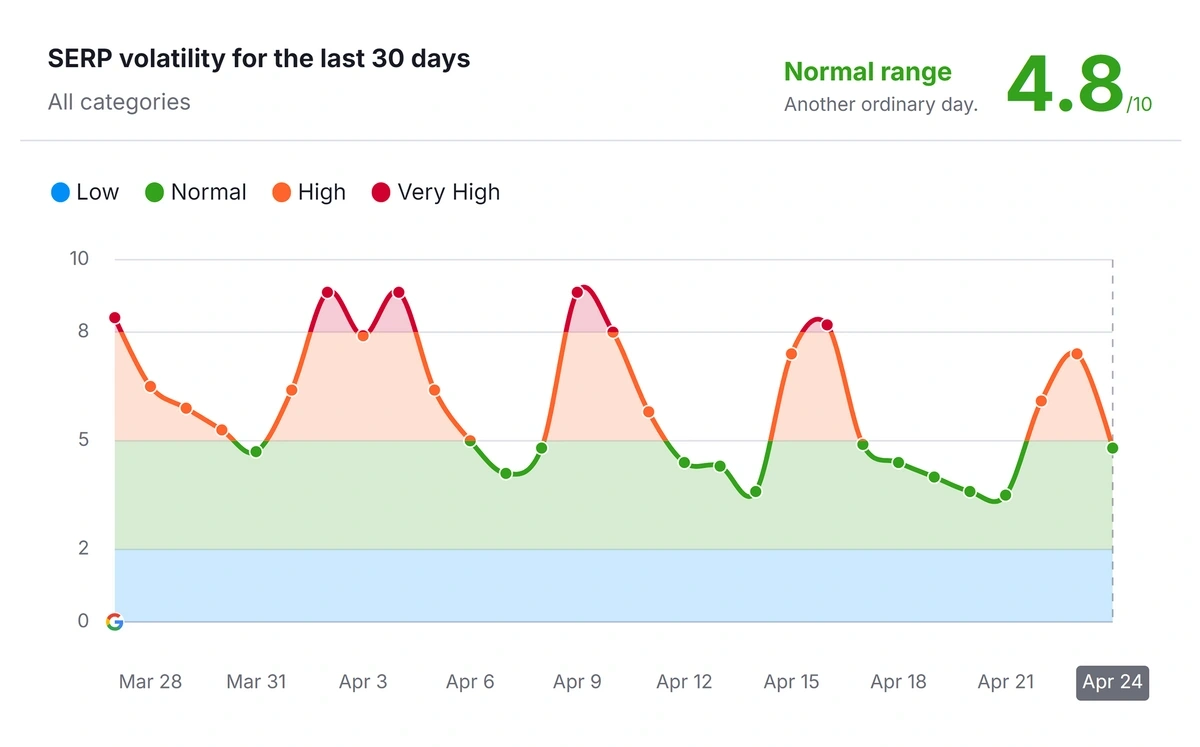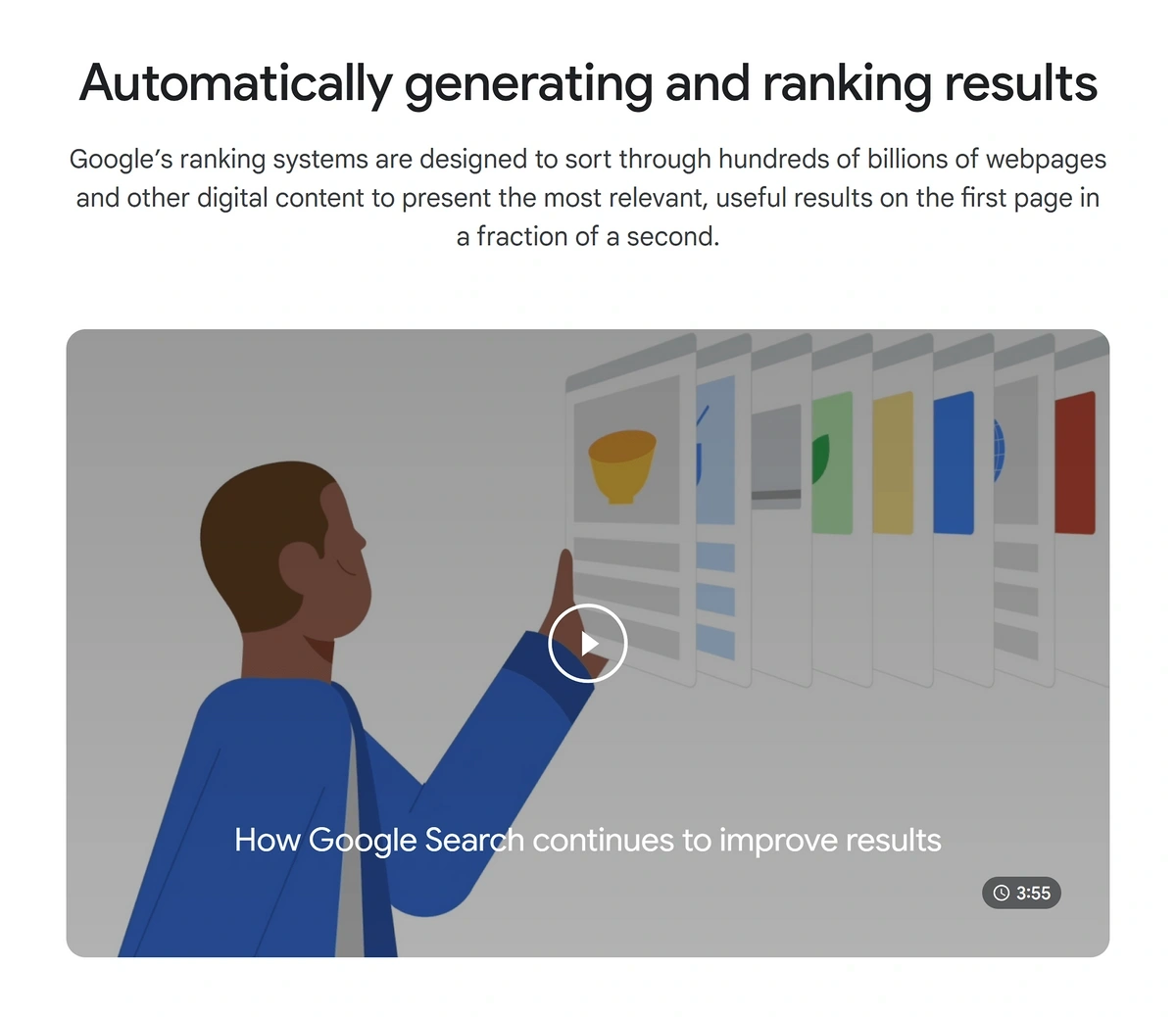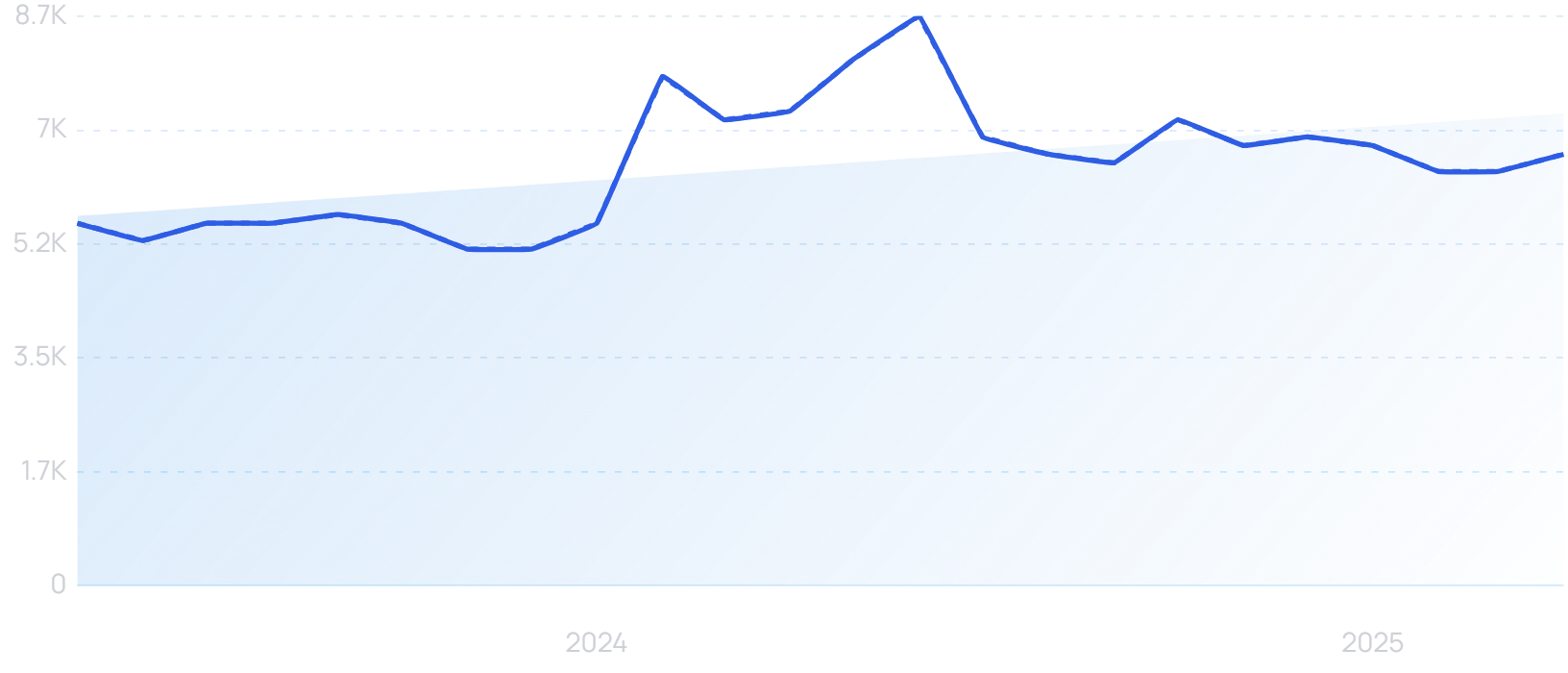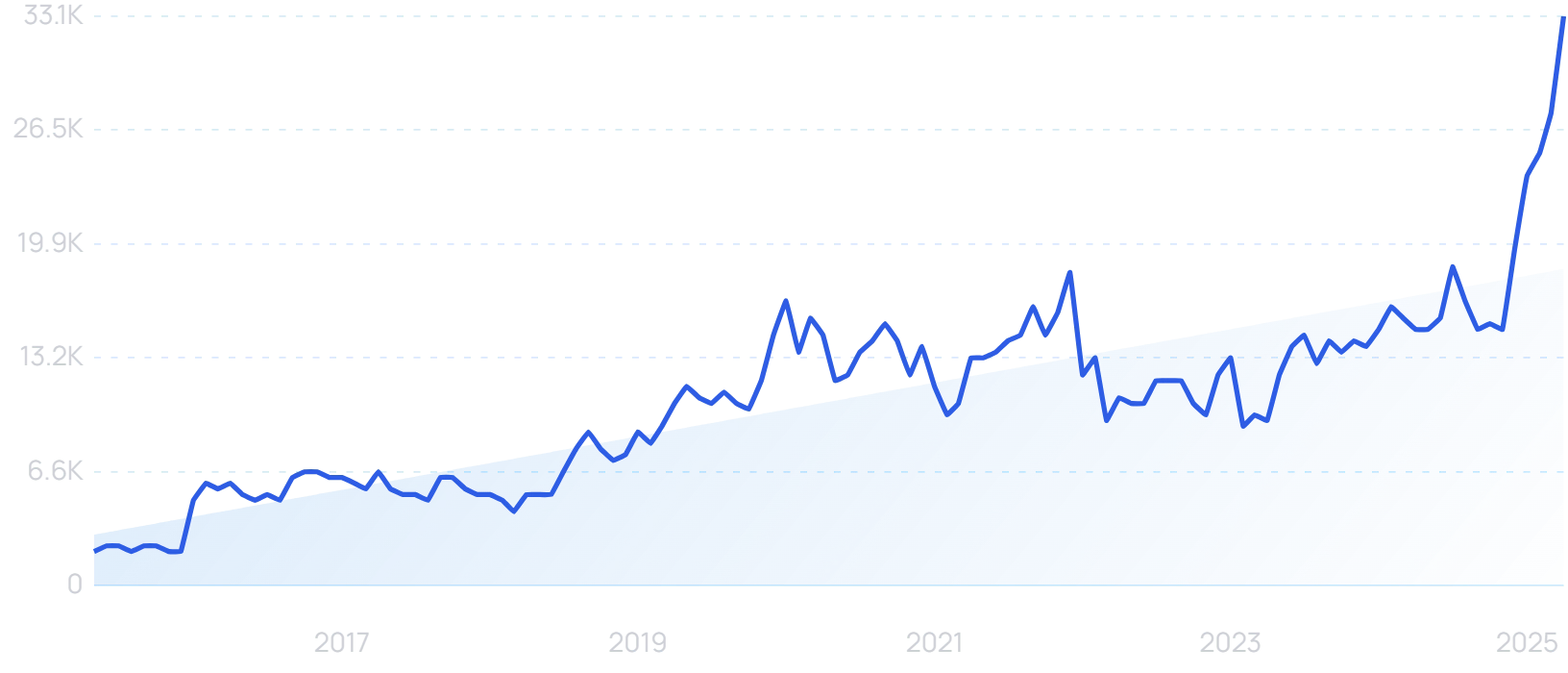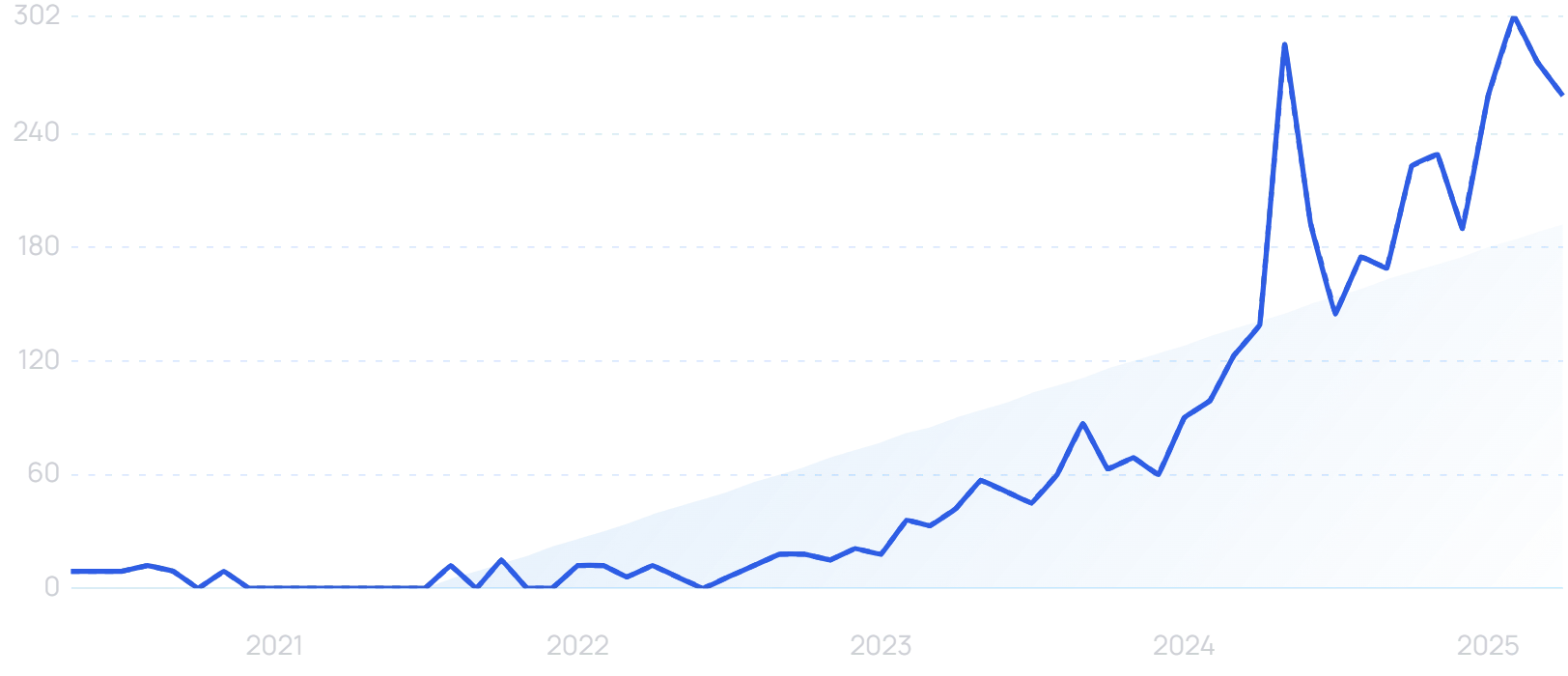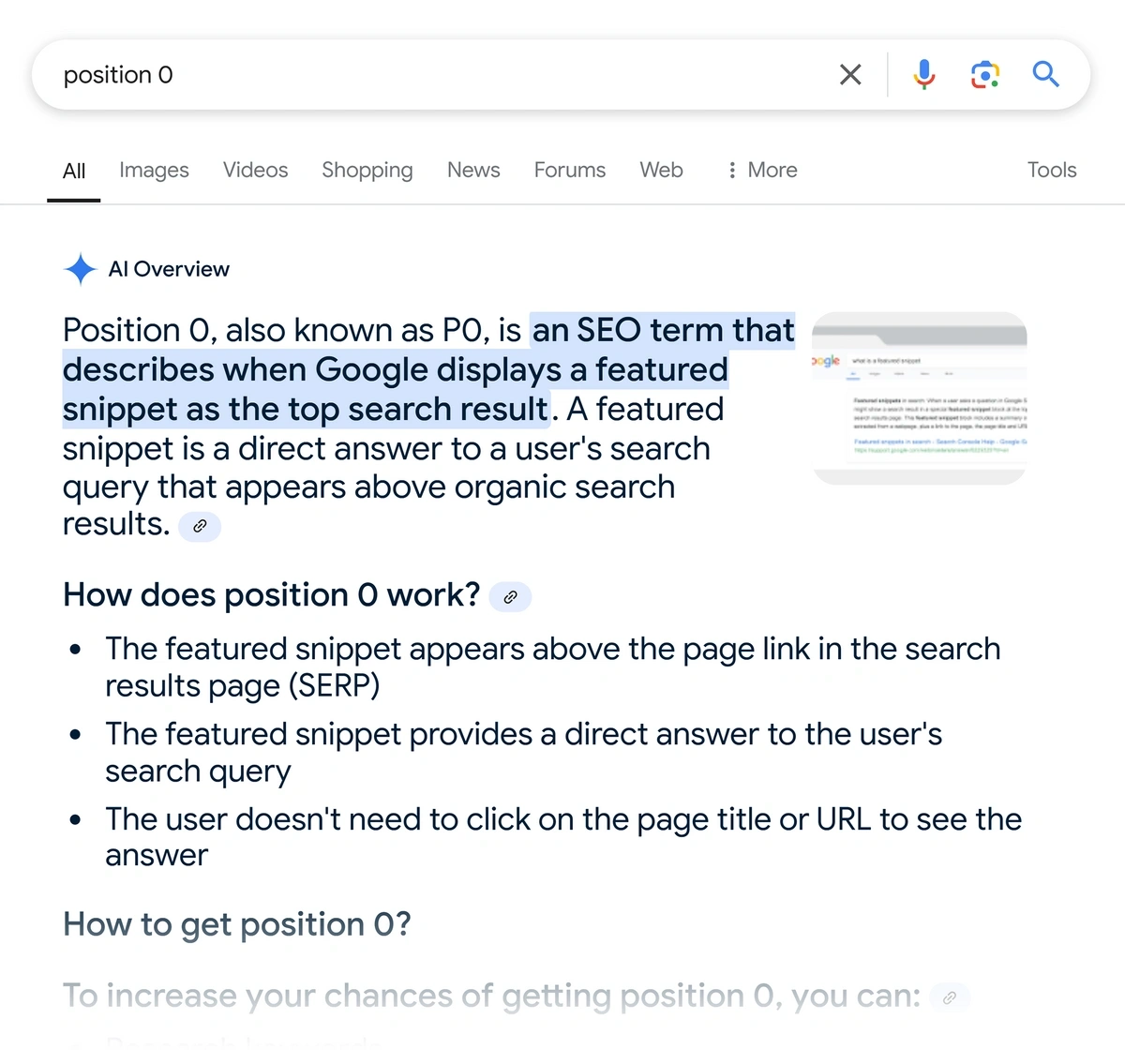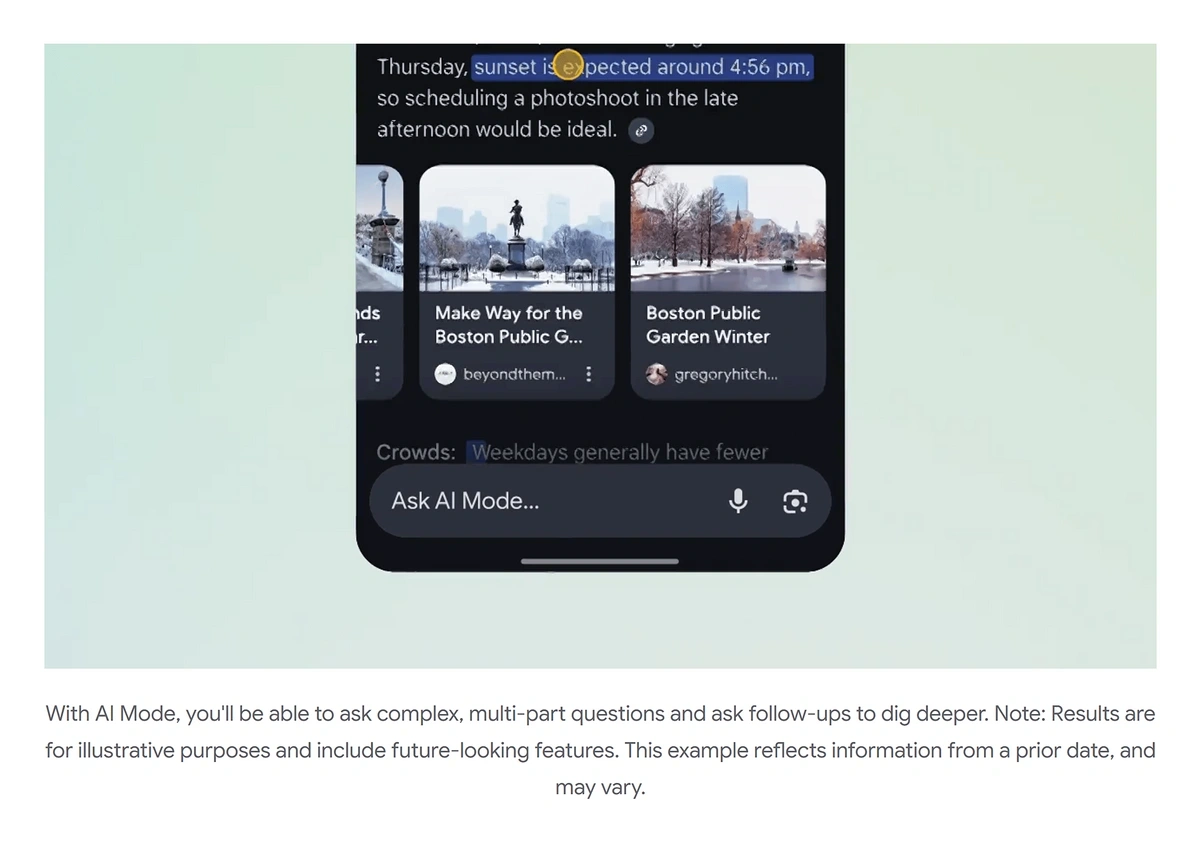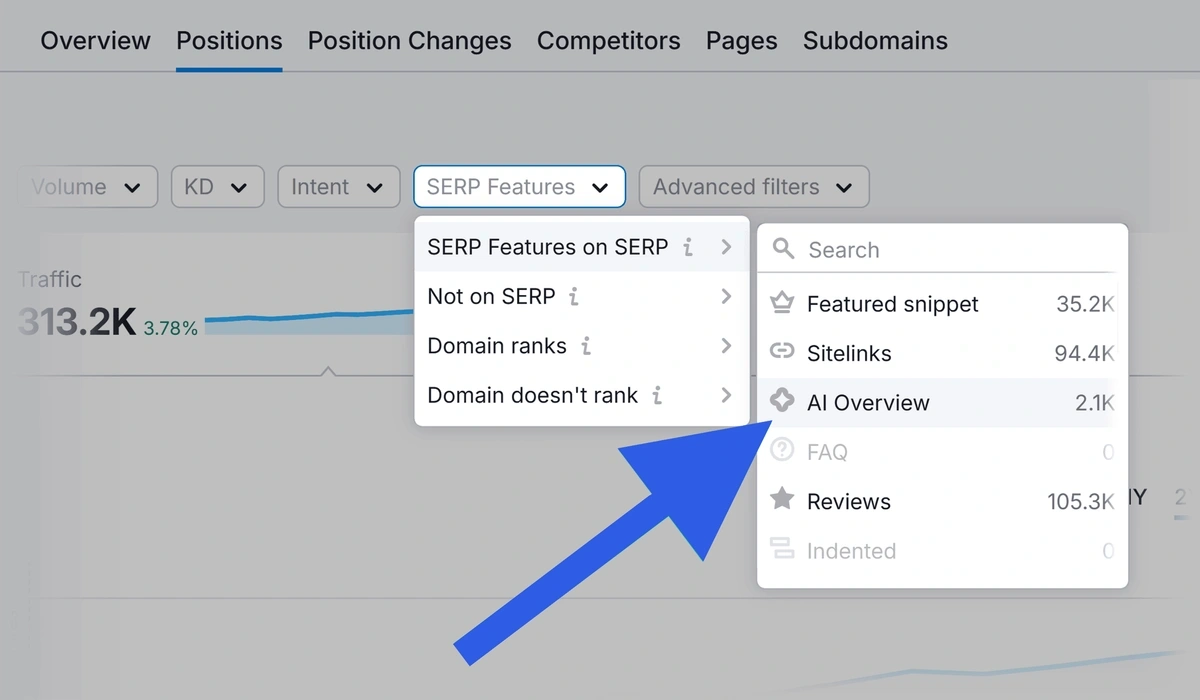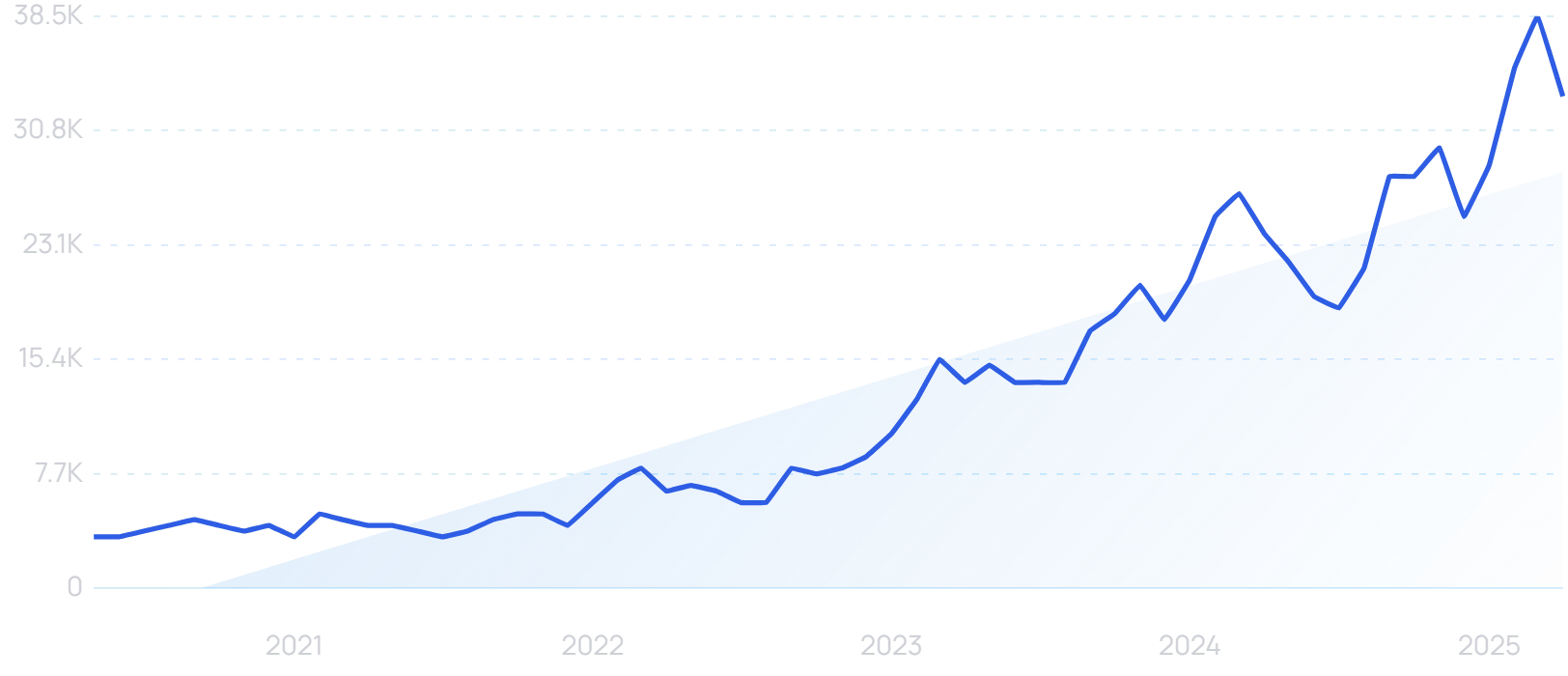
Keyword ranking is most popular metric among SEO professionals amid concern over algorithm changes
SEO is complex and challenging in 2025. Many sites saw their keyword rankings affected last year, with Google algorithm changes a driving force behind the disruption.
A new survey of industry professionals has found that keyword ranking has become the top metric for measuring SEO success. It has overtaken both click-through rate and branded traffic as the number one measure, as experts have found themselves battling headwinds to keep content ranking in the SERPs.
Aside from budget and resources, those surveyed said that Google algorithm updates were the biggest barrier to SEO success over the last 12 months. Dealing with these changes was named as the outright most difficult task in SEO.
Get More Search Traffic
Use trending keywords to create content your audience craves.
And the industry does not anticipate a much more settled time of things in the near future. In the survey, 29% of respondents predicted generative AI would cause the biggest shifts in the next two years. Google updates was the next-most popular answer (16.6%).
The consensus is that keyword ranking is more important than ever amid the choppy waters of the Google algorithm. I’m going to take a closer look at SEO in 2025, with up-to-date opinions and data from those who matter.
Keyword ranking is the SEO holy grail
The latest data comes from the State of SEO 2025 report from Search Engine Journal. Over 1,000 SEO professionals from across multiple countries were surveyed.
Keyword ranking has risen significantly in prominence since the previous report. In the 2024 edition (based on data from 2023), click-through rate and branded traffic were both considered more important metrics than keyword ranking.
These are undoubtedly both valuable metrics in their own right. But the renewed focus on keyword ranking marks a return to fundamentals for SEO, albeit one that is being aided by new technology like AI.
“AI keyword research” searches are up 6600% in the last 5 years.
The bread and butter of the industry is ensuring that content is primed to show up in Google. So the importance of ranking is well-established. Click-through rate is highly significant, but it is inextricably tied to keyword ranking: the top result in Google gets 27.6% of all clicks, with all results below third settling for less than 10% of clicks each.
There are a number of excellent keyword ranking trackers to support this, including the Semrush Position Tracking tool. It provides daily updates on the most important metric in SEO — which keywords you are ranking for, how your Google rank has changed, and who is competing for the same keywords.
Google algorithm changes prompt renewed keyword ranking focus
SEO professionals never stopped caring about keyword ranking. But it’s interesting that it has shot back to the top of the list of KPIs in the 2025 report.
Where ranking for a keyword might once have been taken for granted, changes to Google algorithms have produced certain complications.
Google reported 8 ranking updates in 2024, including four “core updates”.
“Algorithm changes are calling long-held assumptions about content strategy into question,” said Angie Nikoleychuk, a Behavioral Data Analyst at Search Engine Journal. “Content itself is changing.
“Basic content is getting swallowed up and fed into algorithms for zero-click experiences [where user queries are answered without needing to click any search results]. SEO pros are wrestling with what quality and helpfulness look like in this new dynamic, but understanding what the algorithms are doing and why comes first in the hierarchy.”
What has Google said?
Part of the problem for SEO professionals is that Google has never made its algorithm public. Nor is it ever likely to do so.
All things considered, that’s for the best: as a user, I want Google to be serving genuine quality content that meets my search needs, and making its criteria entirely public would invite a flurry of box-ticking content designed to game the system.
However, for those in the SEO industry seeking to achieve prominence for legitimately useful content that deserves to be seen, it can be a bit like playing a game with unknown rules. It’s extremely challenging, especially when the rules appear to keep changing.
Semrush Sensor recorded fluctuating SERP volatility in April following the completion of a core update rollout in March.
But Google does share certain aspects of its internal procedures. It has listed some guidelines in its “How Search Works” section.
Google lists meaning, relevance, quality, usability and context among its key “search signals”.
Google makes certain aspects of its ranking methodology public.
- Meaning is about Google’s process of working out user intent and serving content that meets it. At a basic level, that means recognizing and correcting any spelling errors within search queries, and identifying relevant content that might use synonyms rather than an exact word match. Google says the current system took over 5 years to build, and “significantly improves” results in more than 30% of searches.
- Relevance is where keywords play a huge role. Google acknowledges that content containing the same keywords as the search query is “the most basic signal that information is relevant”.
- Quality can be an elusive term for SEO professionals. Low-quality content still ranks well for valuable keywords. Google has confirmed that backlinks are a good sign of helpfulness and trustworthiness, two elements which feed into website quality and authority.
- Usability is about content that users may find more accessible. Google says that it uses this concept to differentiate results “when all other signals are relatively equal”, so it does not have the greatest weighting, but off page SEO elements like fast load times are relevant here.
- Context tailors search results to individual users. Factors like location and search history can alter what shows up in the SERPs.
The Google leak
Can we trust Google’s account of its ranking factors? That depends on who you talk to.
There certainly seems to be some truth in what Google publicly shares, and I would recommend following their guidelines as a very solid starting point from an SEO perspective.
However, it also seems clear that Google has not revealed everything that goes on under the hood. A Google “leak” last year appeared to confirm as much.
“Google leak” searches rose last year as parts of the algorithm were made public.
Thousands of internal Google documents were made public, and Google has confirmed their authenticity. They referred to as many as 14,000 potential ranking factors.
Perhaps most significantly, click data seems to play a more important part than Google has publicly acknowledged. A protocol called NavBoost re-ranks web pages based on click data from Chrome browsers.
There’s a whole host of other insights to be taken from the Google leak. But whether it’s enough to fundamentally change any aspects of SEO strategy is another question.
Those with a very deep understanding of the field may wish to experiment with certain things that have been hinted at in the leaks. But in the grand scheme of things, the leak has revealed little more than scraps and fragments.
For most people, Google’s public guidance still remains the most useful guide.
Timeline of Google algorithm changes
The Google algorithm is constantly changing. Details of those changes are, once again, limited.
Want to Spy on Your Competition?
Explore competitors’ website traffic stats, discover growth points, and expand your market share.
In 2024, modifications to the algorithm (including 4 core updates) proved particularly disruptive to SEO professionals, but that’s not always the case. In last year’s State of SEO report, for instance, 55.9% of respondents felt that algorithm changes had produced a net positive effect.
Over the years, there have been many updates, some more significant than others:
- Florida (2003): An attempt to weed out spam sites using better link analysis, although some felt there were “false positives”.
- Jagger (2005): A reworking of how Google assessed backlinks. Duplicate content across multiple sites was also downgraded.
- Big Daddy (2005): An infrastructure rollout rather than “just” a tweak to the algorithm. But it had a major impact on SERPs, generally felt to be positive.
- Panda (2011): The true dawn of Google’s “quality” assessment. Designed to combat the growing prevalence of “content farms”.
- Penguin (2012): A familiar theme across many major updates, Penguin targeted spam and manipulative link-building. Like Panda, it shifted focus toward quality.
- Hummingbird (2013): Described as a complete rewrite of the core algorithm, this update supposedly affected 90% of all searches. However, disruption was minimal.
- Pigeon (2014): A significant change for local search results. “Local SEO” is now a major industry.
“Local SEO” searches are up by 1567% in the last 10 years.
- Mobilegeddon (2015): A change to prioritize mobile-optimized content. Designed to reflect the shift in browsing habits to favor mobile devices.
- RankBrain (2015): Generally considered a development of Hummingbird. It improved Google’s ability to understand user search intent.
- BERT (2019): The Bidirectional Encoder Representations from Transformers was a new language model introduced by Google. Again, this enhanced the search engine’s ability to process natural language.
- Core Web Vitals (2021): The direction of travel ever since the 2015 mobile updates, this tweak favored sites with good user experience. It strengthened the “usability” pillar of Google’s publicized criteria.
That’s a non-exhaustive list of some of the more major updates. But numerous changes classified by Google as “core updates” have been released since then, the most recent of which came in March 2025.
It’s hard to draw too many themes from that update, with the effects still in the process of being felt. But initial data appears to suggest that SEO “content farms” are being devalued, while certain forum content seems to have taken a hit as well.
Overall impact does not seem to have been as widespread as previous core updates. Having said that, many of the sites which have been affected by it have seen significant levels of disruption.
How important are Google algorithm changes?
Clearly, Google’s methodology has changed a lot over the past 15 years or so. But there is a school of thought that algorithm changes are not as significant as they may seem — provided you are laser-focused on creating good content for your users.
Joe Friedlein, Founder and Managing Director at Browser Media, summed it up. “If you are consistently trying to improve your website for your users rather than attempting to outwit search engines, I still maintain that you really do not need to worry about algorithm updates.”
I have definitely observed the truth of that statement, at least in a big-picture sense. Great content is key, and Google will always look to reward it.
Google’s stated goal is to prioritize helpful, reliable content.
But that’s not necessarily very reassuring for SEO professionals expecting to see immediate results. Algorithm updates sometimes cause some short-term flux in the SERPs.
There are also some big questions about where AI-generated content fits into the equation. Truly “people-first content” requires people-first input, but it would be wrong to simply disregard helpful AI writing assistants.
Overall, it is little wonder that the industry is leaning heavily on keyword ranking as a marker of success in the current climate. Whatever changes Google makes, being at the top of their results will always be valuable.
Google AI results and the future of search
Position 1 in the SERPs is arguably losing some of its gold-standard status.
That’s because of “position 0”.
Appearing above the organic results, position 0 is a way of referring to Google’s “featured snippet”, which will often provide the user with a zero-click experience by serving the required information directly.
There’s plenty of SEO value in being the featured snippet. Software like the Semrush Organic Research Tool tracks which of your pages have achieved this feat.
Exploding Topics currently has the featured snippet on Google searches for “How many employees does Amazon have”.
But there’s little doubt that the rise of zero-click experiences will change the face of SEO.
And that’s being massively accelerated by the rise of AI search results.
Searches for “AI search results” are up 2767% in 5 years.
In the State of SEO report, 36.3% of respondents named generative AI in search as the number one most significant future disruption in SEO performance.
For the first time, the direct connection between keyword ranking and click-through rate could be somewhat weakened. That’s a game-changer.
Take the example of a Google search for “position 0”.
This is what the top of the SERPs looks like when you search “position 0”.
Anyone searching for “position 0” would get all the key information without having to click into anything. For a deep dive, they might follow some of the links to the original sources, but the AI Overview attempts to answer the core question.
AI Overviews are controversial because they summarize content from indexed results. There are also issues with hallucinated overviews. Last year, the AI overview feature infamously advised using glue to stick cheese to pizza.
Google’s AI overview feature has not had a totally seamless introduction.
Optimizing for Google AI Overviews
For better or worse, Google’s AI Overviews now appear in a significant proportion of searches. There’s no exact figure, but one study found that the overviews featured in around 30% of queries.
That figure rises as high as 74% when it comes to queries classed as “problem-solving”. And Google recently launched Gemini 2.0 for AI Overviews, equipped with more robust reasoning and problem-solving skills.
There’s even an experimental “AI Mode” designed for multi-part problems that may require follow-up questions. An example provided by Google involves the search query “When is the best time this week to schedule an outdoor engagement photoshoot in the Boston Public Garden?”
Google’s experimental AI Mode — the future of search?
The AI response factors in elements like weather, light, crowd, and permits, providing links to relevant websites.
Anyone wishing to specifically optimize for AI Overviews (and in the future, potentially a full AI Mode) may therefore want to create content that succinctly answers pertinent user questions.
When looking to optimize, it can also be valuable to analyze how your existing content is performing in AI Overviews. The Semrush Organic Research Tool is perfect for doing this.
Using the Semrush Organic Research Tool, I can see how much Exploding Topics content is already featuring in AI Overviews.
This allows you to spot any patterns in terms of what kind of content lends itself to AI Overviews. It’s a really valuable feature.
Yet as far as Google is concerned, there is no specific SEO trick to optimizing for AI Overviews. Its guidance says there is “nothing special for creators to do to be considered other than to follow our regular guidance for appearing in search”.
There is some natural reticence about optimizing for AI Overviews at all, given the intuitive assumption that they will draw clicks away from the source material. There has even been an antitrust lawsuit filed to that effect.
But in response, Google has said that it still drives “billions of clicks to sites across the web”. It has also claimed that the AI Overviews actually send traffic to a “greater diversity of sites”.
Does keyword ranking still matter in the age of AI results?
So is the industry wrong to be falling back on keyword ranking? If AI is so significant, is this an outdated KPI?
In short, not at all. Keyword research remains a crucial part of SEO.
If the future of SEO looks likely to be AI-driven and zero-click, the one totally foolproof thing to do is to diversify your sources of traffic. It has always been a risk to rely completely on a third party, even one as significant as Google.
But at the same time, while the percentage of zero-click searches might rise, there will always be people looking for more information. Those people will turn to the results that rank high in the SERPs.
They will also turn to the sources cited within the AI Overviews. Google itself has confirmed that SERP-friendly sites are well-placed in turn to feature as part of these overviews — so even accounting for “position zero”, keyword ranking still acts as a reasonably good proxy for search success.
And in any case, it would also be overly hasty to rush to any definitive conclusions about the future role of AI in search due to the imperfect answers it provides.
There are also environmental concerns. Last year, Google’s use of AI drove a 48% increase in emissions. It cites the potential of the technology to reduce greenhouse gas emissions by 5-10% by 2030, but not everyone is convinced.
“AI ethics” searches are up 856% in the last 5 years.
As the recent survey of SEO professionals makes clear, we’re a very long way from a hypothetical future where ranking for major keywords is no longer important.
How to give yourself the best chance of ranking for keywords
The message from the SEO community could not be clearer: in 2025, nothing is more important than keyword ranking.
Google will continue to change its algorithm and integrate AI features into results.
But by sticking to SEO fundamentals, you are giving yourself the best chance of success. Keep targeting keywords, and keep producing high-quality content, and you will see results.
The Semrush suite of tools is invaluable when it comes to ranking for keywords. You can generate millions of keyword suggestions instantly with the Keyword Magic Tool, track your progress with the Position Tracking Tool, and see where your competitors are gaining an edge with the Keyword Gap tool.
Sign up to Semrush now to be in the best position to succeed.
Stop Guessing, Start Growing 🚀
Use real-time topic data to create content that resonates and brings results.
Share
Newsletter Signup
By clicking “Subscribe” you agree to Semrush Privacy Policy and consent to Semrush using your contact data for newsletter purposes
Written By


James is a Journalist at Exploding Topics. After graduating from the University of Oxford with a degree in Law, he completed a... Read more

